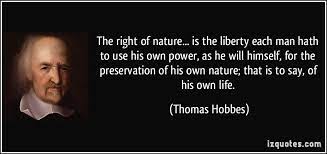Thomas Hobbes’ Views on Human Nature
May 06, 2023
This essay describes Thomas Hobbes’ views on human nature.
Thomas Hobbes was a 17th-century English philosopher who famously argued that life in the state of nature is "solitary, poor, nasty, brutish and short". According to Hobbes, humans are driven by their own self-interest and competitive nature. He believed that it is necessary for humans to form a social contract with one another in order to ensure security and peace. This social contract creates laws and regulations which help maintain order and prevent anarchy.
Hobbes also argued that human beings have no natural rights or obligations; instead, they agree to limit some of their own liberties in exchange for protection from the government. He proposed that citizens must be willing to surrender their complete obedience to the government in order for the system to work. Hobbes' views were influential on many political philosophers and his ideas can still be seen in contemporary society.

In addition, Hobbes believed that human nature was driven by a "war of all against all". He asserted that humans are motivated by ambition, greed and fear, leading them to compete with one another even in the absence of law. For this reason, he argued that governments must be powerful enough to deal with these forces efficiently.
Ultimately, Hobbes’ views on human nature were centered around the idea that individuals must establish a social structure in order to bring about security and peace. His beliefs have been highly influential and continue to shape our understanding of politics, society and human nature.
By exploring Hobbes’ views on human nature, we can gain insight into the importance of establishing a social contract between individuals in order to ensure security and peace for all. His ideas about competition, ambition, greed and fear are still relevant today and continue to influence our thinking about how governments should be structured. Through this examination, we can better understand how his theories have shaped our modern-day society.
Hobbes' views were not without criticism; some believed that he underestimated the potential for goodness and cooperation among people in a state of nature. Nevertheless, Hobbes’ legacy continues to haunt us today with its harsh realism and vivid warnings regarding the consequences of unchecked human nature. For this reason, his ideas remain extremely relevant and influential in our contemporary society.
In conclusion, Hobbes' views on human nature have been highly influential on many political philosophers and continue to shape our understanding of politics and society today. His theories provide an insight into the importance of establishing a social contract between individuals in order to ensure security and peace for all citizens. They also remind us of the potential consequences that can arise from unchecked human ambition, greed and fear. Through this examination, we can better appreciate the value of Hobbes’ legacy and its relevance to modern-day life.
